A survey conducted by the Korea Institute for Health and Social Affairs in August 2023 showed that only half of people aged 19 to 49 said they wanted to get married.
Among those who intend to marry, less than half express an intention to have children in the future.
The results of this survey were recently announced by the Presidential Committee on Population Policy and Aging Society of Korea on March 17.
By gender, 56.3% of men said they were ready to get married, while the rate for women was 47.2%. By age group, the rate of readiness to get married gradually decreased with age: 58.7% for people aged 30-34 and started to decrease from age 35 and above.
When asked if they were ready to have children, 46% of survey respondents said they “have no intention of having children”. Only 28.3% were ready to have children. However, among married respondents, 46.5% said they were “thinking about having children” and 24.7% said they “will not have children”. Among married respondents with at least one child, 76% were not ready to have more children.
93.9% of survey respondents agreed that the decline in the total birth rate is a "social problem". Most said "difficulty in working and raising children" was the cause.
Another report released by the Korea Women’s Development Institute (KWDI) highlights the heavy burden of caregiving that women shoulder, even in dual-income households. On average, mothers spend nearly 12 hours a day caring for their children, compared to nearly 8 hours for childcare centers, 4 hours for fathers, and nearly 4 hours for grandparents.
KWDI concluded that the burden of childcare before and after work falls primarily on mothers. Between 6am and 8am each day, mothers spend 60 to 80% of childcare time, while fathers spend only 10%. During the workday, the burden shifts to daycare or grandparents, but then returns to mothers at the end of the day. By 6pm, the childcare ratio is 55% for mothers and 20% for fathers.
According to KWDI, the care of infants and young children is mainly provided by mothers, regardless of whether they work or not, which clearly shows gender inequality in the division of childcare. Therefore, the agency recommends restructuring the work environment to balance childcare and work, as well as re-establishing a reliable public care environment.
Huy Phuong (According to Korea Herald )
Source



![[Photo] Prime Minister Pham Minh Chinh launched a peak emulation campaign to achieve achievements in celebration of the 14th National Party Congress](https://vphoto.vietnam.vn/thumb/1200x675/vietnam/resource/IMAGE/2025/10/5/8869ec5cdbc740f58fbf2ae73f065076)

![[Photo] Prime Minister Pham Minh Chinh chairs the Government's online conference with localities](https://vphoto.vietnam.vn/thumb/1200x675/vietnam/resource/IMAGE/2025/10/5/264793cfb4404c63a701d235ff43e1bd)




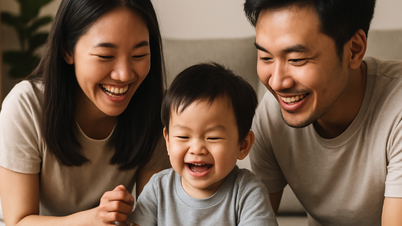
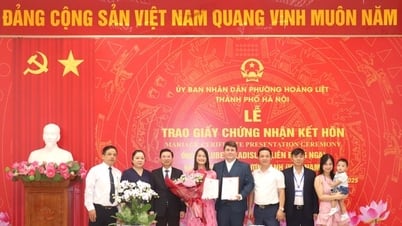



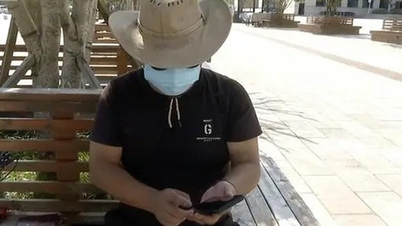






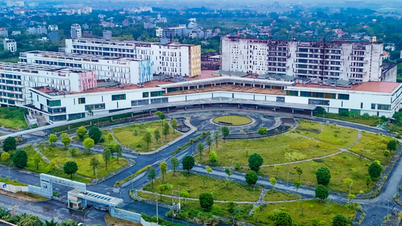

![[Video] Jelly Mooncakes: New Colors for the Mid-Autumn Festival](https://vphoto.vietnam.vn/thumb/402x226/vietnam/resource/IMAGE/2025/10/5/abb1d390ee7f452b9110fca494ba0d77)



![[Video] Traditional moon cakes attract customers](https://vphoto.vietnam.vn/thumb/402x226/vietnam/resource/IMAGE/2025/10/5/0a98992e8c92419fa9ea507de23e365d)

































![[VIDEO] Summary of Petrovietnam's 50th Anniversary Ceremony](https://vphoto.vietnam.vn/thumb/402x226/vietnam/resource/IMAGE/2025/10/4/abe133bdb8114793a16d4fe3e5bd0f12)

![[VIDEO] GENERAL SECRETARY TO LAM AWARDS PETROVIETNAM 8 GOLDEN WORDS: "PIONEER - EXCELLENT - SUSTAINABLE - GLOBAL"](https://vphoto.vietnam.vn/thumb/402x226/vietnam/resource/IMAGE/2025/7/23/c2fdb48863e846cfa9fb8e6ea9cf44e7)
















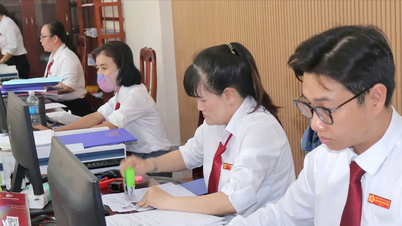
















Comment (0)